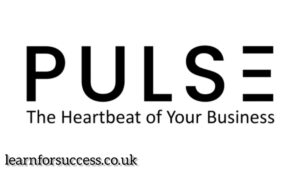AnonIB Archive: What It Is, How It Works, and Why It Matters
Introduction
The AnonIB Archive is a collection of content from the once-popular but controversial imageboard AnonIB. This platform allowed users to post images and discussions anonymously, which led to widespread sharing of explicit images, often without consent. Although AnonIB is no longer active, the AnonIB Archive still exists in various corners of the internet, raising important questions about privacy, consent, and the ethical use of digital content. Accessing the AnonIB Archive involves navigating legal and ethical challenges, making it crucial for anyone interested to understand what they’re getting into.
History of AnonIB
AnonIB, which stands for Anonymous Image Board, started as a niche platform for users to post images and threads without revealing their identities. However, it quickly gained notoriety as a hub for explicit content, often involving non-consensual images. This led to significant privacy violations and legal battles that ultimately contributed to the platform’s demise. Despite multiple shutdowns, AnonIB often resurfaced, driven by its anonymous nature and the persistence of its community. Today, the AnonIB Archive remains as a digital remnant of this controversial site, continuing to spark debates about online behavior, privacy, and accountability.
Understanding AnonIB Archive
The AnonIB Archive is essentially a collection of saved content from the original AnonIB platform. These archives include images, text threads, and various other materials that were posted before the site was shut down. Some parts of the AnonIB Archive are easily accessible through simple web searches, while others are hidden deeper in the web. The content within these archives can range from harmless discussions to explicit, non-consensual imagery. For some, the AnonIB Archive serves as a snapshot of a certain time in internet culture. For others, it’s a source of ongoing distress, particularly for those whose images were shared without permission. Understanding the AnonIB Archive means recognizing both the technical aspects of data preservation and the profound ethical implications of storing and accessing such sensitive material.
Accessing AnonIB Archives
Accessing the AnonIB Archive is relatively straightforward, but it comes with serious risks and responsibilities. While some archives are publicly accessible, others are hidden in more obscure parts of the web. It’s crucial to remember that viewing or distributing content from the AnonIB Archive can have legal consequences, especially if the content involves explicit images shared without consent. Furthermore, accessing these sites can expose you to malware, phishing scams, and other cybersecurity threats. If you’re exploring the AnonIB Archive for research or other legitimate reasons, it’s important to be aware of the legal landscape and ensure that your actions do not violate any laws or ethical standards.
Uses of AnonIB Archives

The AnonIB Archive has been used for various purposes, despite its controversial nature. Researchers might study these archives to understand internet culture, the impact of online anonymity, or the spread of non-consensual imagery. Data analysts might explore patterns in content sharing and user behavior on platforms like AnonIB. Additionally, some individuals use the AnonIB Archive to track the unauthorized distribution of their own images, often as part of efforts to have them removed or to pursue legal action. However, using the AnonIB Archive is not without ethical dilemmas. While it offers a glimpse into certain aspects of digital behavior, it also perpetuates the availability of harmful content. It’s essential to balance the desire for information with the potential harm it could cause to those depicted in the archived material.
Legal and Ethical Concerns
The AnonIB Archive raises significant legal and ethical concerns. Legally, the distribution and possession of non-consensual explicit imagery can result in severe consequences, including criminal charges. Even accessing the AnonIB Archive out of curiosity could implicate you in privacy invasions. Ethically, viewing or sharing content from the AnonIB Archive can contribute to ongoing harm for individuals whose images were posted without their consent. Many of these individuals suffer from harassment, doxxing, or other forms of cyberbullying due to their images being shared. Anyone engaging with the AnonIB Archive should consider the impact of their actions on the real people involved and prioritize consent and privacy above curiosity or academic interest.
Alternatives to AnonIB Archives
For those interested in exploring the dynamics of online anonymity or the history of controversial platforms, there are safer and more ethical alternatives to the AnonIB Archives. Academic studies, journalistic reports, and documentaries often provide in-depth analyses without compromising individuals’ privacy. Online forums and communities dedicated to discussing digital ethics can also offer insights into platforms like AnonIB. Additionally, websites like Reddit or other imageboards may host discussions on similar topics without the explicit and non-consensual content found in the AnonIB Archives. By choosing these alternatives, researchers and curious individuals can gain valuable knowledge without engaging in or perpetuating harmful behaviors.
(FAQs)
- What is the AnonIB Archives?
The AnonIB Archives is a collection of content from the now-defunct AnonIB imageboard, including images and discussions. - Is it legal to access AnonIB Archives?
Accessing AnonIB Archives can be legally risky, especially if they contain explicit, non-consensual content. - Why is the AnonIB Archive controversial?
The AnonIB Archive is controversial due to privacy violations, as it often includes images shared without the individuals’ consent.
Conclusion
The AnonIB Archives serves as a stark reminder of the complexities surrounding online anonymity, consent, and digital ethics. While it provides a window into a specific subculture of internet history, it also keeps harmful content alive. Accessing the AnonIB Archives should not be taken lightly, and it is essential to consider both the legal and ethical implications. For those looking to explore themes related to AnonIB, seeking out ethical alternatives and respecting the privacy of those involved is crucial. As the digital landscape evolves, so too must our understanding of the responsibilities that come with accessing and sharing information online.
Also Read Learnforsuccess.co.uk














Post Comment